If the way the Montreal Canadiens are playing right now is any indication, the worst is over. Yes, they’re continuing to lose with regularity, like they did 2-1 against the New York Islanders on Jan. 14, but at least the effort level was there, which was more than can be said for the Habs during their seven-game losing streak that started in late December, during which they got outscored 36-12, literally a 3:1 margin.
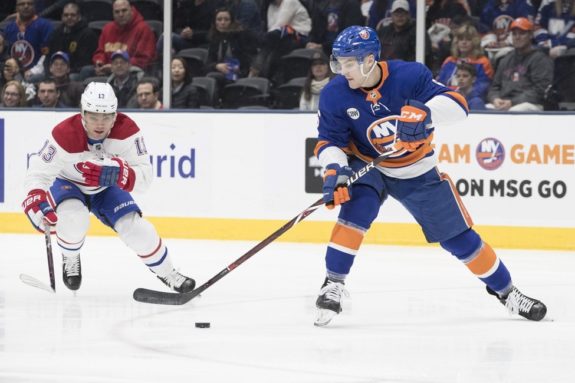
It had gotten so bad, the Canadiens had fallen so far out of the playoff race, now 12 points behind those same Islanders for the second Eastern Conference wild-card spot. As a result, many had started wondering if there was any difference at all between this 2022-23 season and 2021-22, when they regularly got routed and finished in last place.
Realistically though, that’s just not going to happen. The 2021-22 Canadiens seasons had at one point been in the running for the title of worst in Habs history (literally). Here are five reasons the current 2022-23 edition can only be objectively described as in a different stratosphere:
5. Simple Math and Probability
For starters, at their lowest point, the 2021-22 Canadiens were 8-30-7. That was when ex-head coach Dominique Ducharme got fired, with a relatively embarrassing points percentage of 0.256. Right now, they’re at .430.
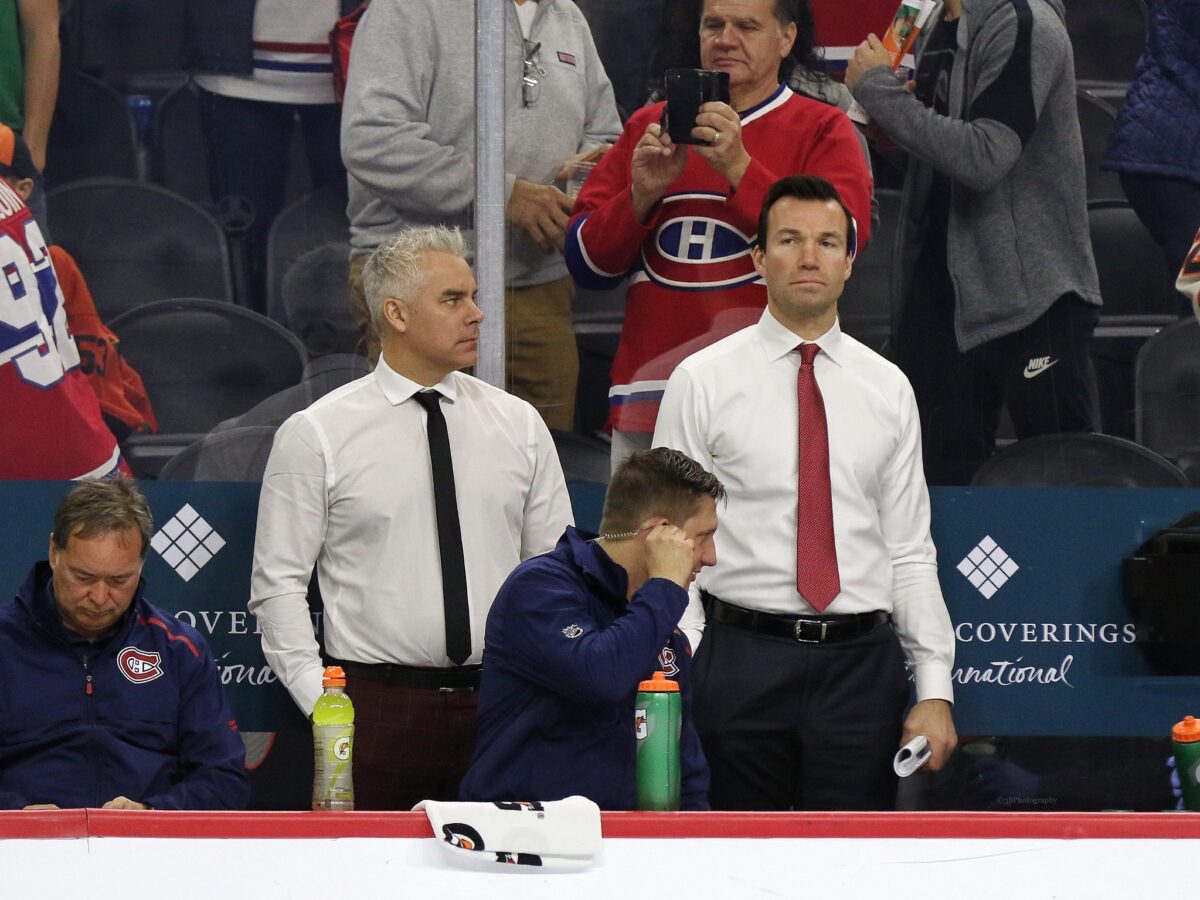
At 17-23-3 (compared to 22-49-11 at the end of last season), the Canadiens would need to go worse than 5-26-8 the rest of the way (.231). Even the 2014-15 Buffalo Sabres, who were actively tanking to (unsuccessfully) draft Connor McDavid, finished with a 23-51-8 record (.329). Meanwhile, considered perhaps the worst team of the salary cap era, the 2016-17 Colorado Avalanche went 22-56-4 (.293).
Related: Canadiens on Right Track to Becoming Next Avalanche/
So, even if just superficially speaking, the Canadiens are not as bad as last year. They’re not even going to be worse than that Avalanche team, even if there are probably worse things for the sake of their long-term success. All fans have been seeing recently are growing pains on the part of an undeniably bad team, but one that’s also undeniably young and just learning the ropes.
4. Potentially Two All-Stars in Nick Suzuki and Cole Caufield
Two of those young players are obviously captain Nick Suzuki (23) and Cole Caufield (22). They each represent current pillars of the team and the future of the organization, which seems very bright as a result.
Proof to that effect, aside from the statistical evidence of how both currently lead the team in scoring, is how Suzuki specifically was named to the All-Star Game. Meanwhile Cole Caufield has an increasingly realistic chance of getting voted in as well.
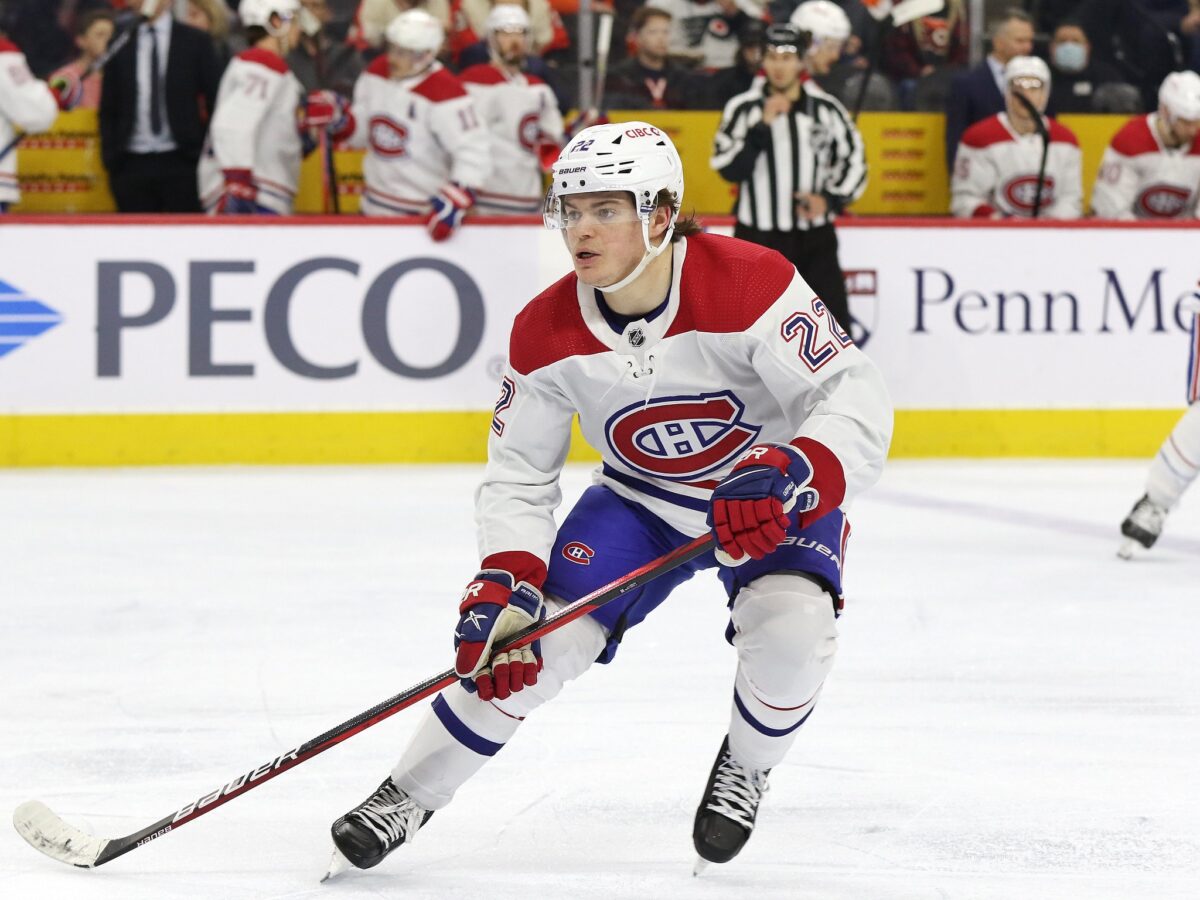
True, all teams need to have one player. However, Suzuki would be making his second-straight appearance, hinting at lasting star power. Furthermore, last season, he literally beat out depth-defenseman Chris Wideman for the honor.
Had Wideman been named, like NHL.com envisioned at one point, it would have been purely to meet the league’s requirement that each team be represented. In contrast, Suzuki made the event, especially this season, on his own merits. Same in the case of Caufield, if he were to get named, seeing as he’s scoring at a 48-goal pace.
Caufield, all on his own, points to a big difference between this season and 2021-22, at least under Ducharme. Before St. Louis took over, Caufield had just one goal and seven assists (30 games). He finished the season with 23 goals and 20 assists in 67 games, meaning he scored 22 goals and 13 assists in 37 games under St. Louis.
Other players similarly picked up the pace, but Caufield’s development has arguably been the most dramatic change, looking at individual players. The fact that he’s kept up the pace this season, even as the losses pile up, is nothing but a good sign. It’s just a matter of putting it all together in the front office and behind the bench.
3. Full Season of St. Louis Behind the Bench
Keep in mind, Martin St. Louis is not a miracle worker. He’s now a second-year head coach who still has a lot to learn. Even if he earned rave reviews last year, at the end of the day he still earned an objectively mediocre 14-19-4 record.
The Canadiens were just so bad under Ducharme that St. Louis looked good in comparison, even if he still has a lot more work to do. That should be plainly evident by the fact he had zero professional coaching experience when he got hired. Yet general manager Kent Hughes deliberately went off the board to make him his first head-coaching hire.
Think about that for a second and how, reasonably speaking, even if St. Louis had been hired on an interim basis, he was never getting fired (barring a disastrous end to last season), as that first head-coaching hire. Considering how 2021-22 began, it would have had to end historically bad for that to have even been an option.
Hughes theoretically could have kept the interim tag, if he still had doubts. As it happens, the Canadiens made the hire permanent last offseason, because St. Louis proved himself to be the right coach for right now, in spite of his lack of experience. Rationally, that’s not because Hughes anticipated the wins to come fast and furious in his sophomore season. Anyone who did just hasn’t been paying attention.
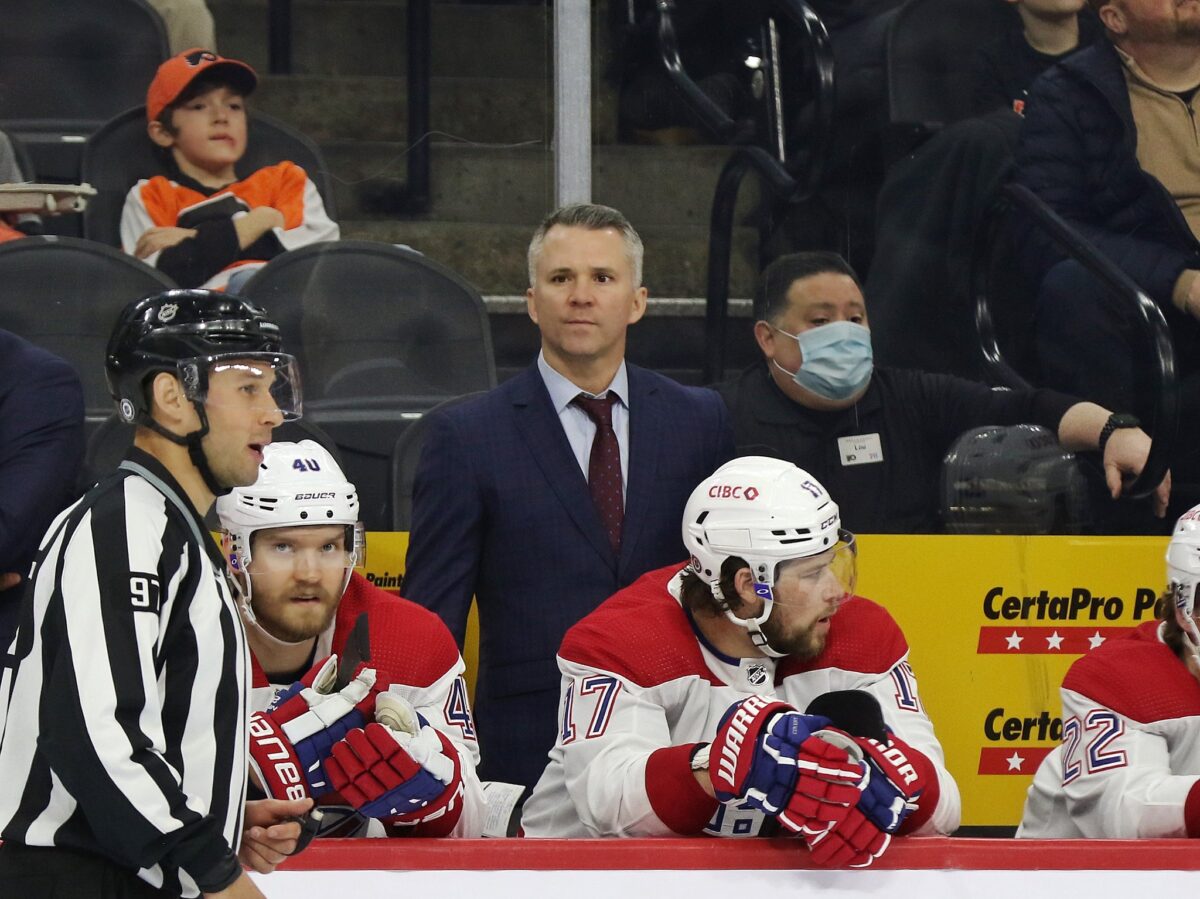
True, there’s an arguable double standard at work in that Ducharme was fired after an especially bad stretch last season, very similar to the one the Canadiens went through in late December. However, that argument lacks the proper context, in that expectations were slightly different under Ducharme after the Habs went to the Stanley Cup Final in 2021.
The Canadiens were always going to be in tough to make the playoffs in 2022, but few experts if any expected things to go as badly as they did. Even if a record number of injuries played a part, a coaching change was in order, even if only because Hughes was entitled to put his guy behind the bench to start his tenure off on as right a foot as possible.
That’s St. Louis, for better or worse. Logically, Hughes didn’t hire a rookie head coach to make the playoffs a single season after the Canadiens finished last in the entire NHL. So, any frustration directed St. Louis’ way is misplaced.
In fact, not only does St. Louis deserve slack, but he’s arguably doing as well as he can with the pieces with which he has to work. In some ways, with regard to any calls for him to be on the proverbial hot seat, he’s a victim of his own success.
2. Better Start to 2022-23
It’s all about expectations. Expectations were so high, unjustifiably so, for Ducharme to start 2021-22 that, no matter what he did, he wasn’t going to meet them. St. Louis meanwhile exceeded them to start 2022-23 with the Canadiens at one point holding down a playoff spot.
At their arguable peak, the Canadiens were 8-6-1 (.567) at the start of November. Before things started to unravel, they were 11-9-1 (.548). The Islanders are currently 23-18-3 (.557). So, the Canadiens were for all intents and purposes already on the verge of falling out of the race even if the status quo, them playing as a .500 team that couldn’t consistently string wins together, held true.
Free Standard Shipping Until Jan. 18
Bottom line, as harsh as it may sound, the Canadiens were a playoff team in name only. On top of that, with the Canadiens always poised to regress to the mean based on how they had been winning, on the strength of unsustainably strong goaltending, that status quo was always a pipe-dream.
However, many bought into the better-than-expected start as a sign the Canadiens were legit playoff contenders. Had they been playing at the same points percentage from the start (with the same record now), it’s likely St. Louis wouldn’t be facing any criticism at all, even if the Habs were always likelier to finish closer to the bottom of the standings than in a playoff spot based on the team’s make-up. That’s how true rebuilds go, and, like it or not, the Canadiens are rebuilding.
1. Canadiens Rebuilding
Maybe Hughes didn’t anticipate a stretch as rough as the one the Canadiens went through in December and January. However, there should be little doubt the Habs are where he thought they’d be in the standings right now, i.e., near the bottom.
Firstly, Hughes went on record with TVA as saying that the team’s relatively fast start surprised even him. Secondly, in that same interview, he confirmed he was hoping to secure a third first-round pick for the 2023 NHL Entry Draft (on top of the Canadiens’ own pick and the one they got from the Florida Panthers for Ben Chiarot last season).
There is no way to get a third-round pick without trading away assets. So, Hughes was indirectly saying the plan is to sell off assets leading up to the trade deadline. You’re not looking to make the playoffs as sellers. That’s just common sense.
Finally, Hughes entered the season with a goaltending tandem of Jake Allen and Samuel Montembeault. Neither one had shown a consistent capability to step up as a No. 1… in Hughes’ own words. In other words, this is Hughes’ master plan.
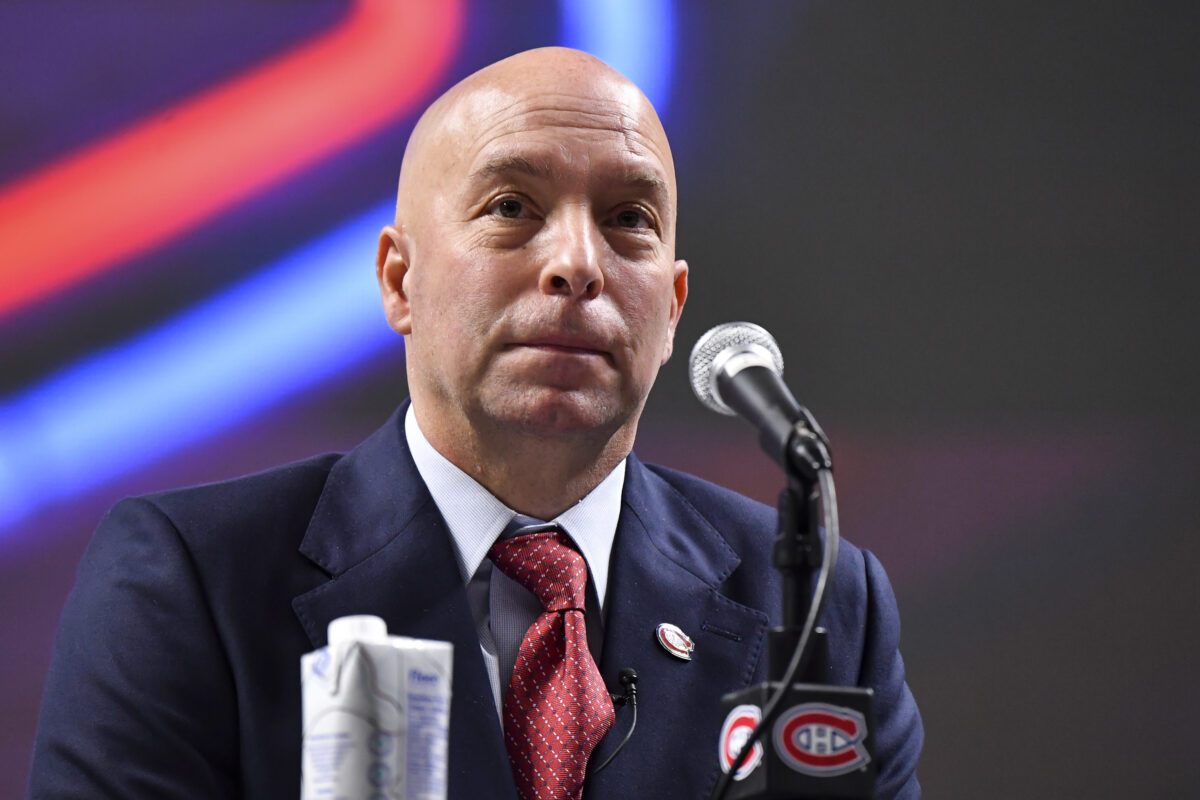
The difference is, it wasn’t ex-GM Marc Bergevin’s plan. In his defense, he started 2021-22 at an obvious disadvantage, with Carey Price and Shea Weber each retiring for all intents and purposes. However, based on how he handled the Jesperi Kotkaniemi situation, immediately overpaying for Christian Dvorak to replace him, Bergevin was clearly hoping to stay competitive. It just wasn’t meant to be.
In sharp contrast, this rebuild was, in terms of how painful it’s been at times this season. However, there’s been undeniable progress to the point that no one should actually be able to confuse what’s taking place now with the rock bottom the Canadiens hit in 2021-22. Put simply, Hughes has a job to do. He’s doing it. Ditto for St. Louis. The same can’t be said for their counterparts at the start of last season.
Now, the Canadiens are one step closer to veteran players getting moved out at the deadline, other unwanted contracts expiring at season’s end and Hughes having the cap space to really get the rebuild moving the right direction. Maybe it’s moving slower than some in the media would like, but that shouldn’t be the Canadiens’ problem (unless it becomes one through popular opinion).
You’d just think, going on 30 years since the last Stanley Cup victory, everyone would understand a different approach to icing a legitimate contender is in order. That’s what fans are seeing now, something different. A little more time shouldn’t be too much to ask.
